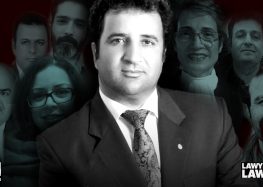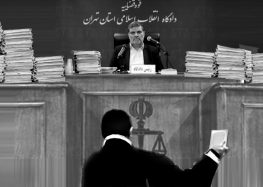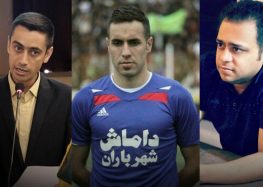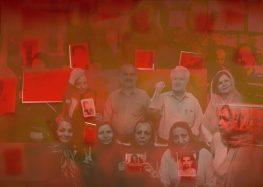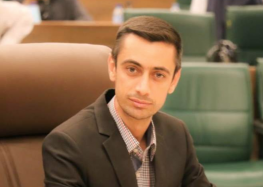Prominent Iranian Activists Speak Out Against Councilman’s Imprisonment
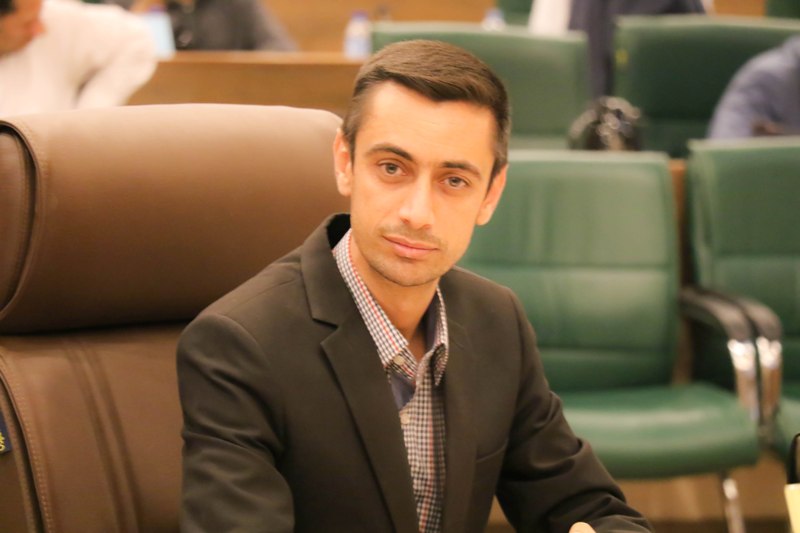 Former Political Prisoners Condemn the Criminalization of Free Speech in Iran
Former Political Prisoners Condemn the Criminalization of Free Speech in Iran
A group of prominent political and civil rights activists in Iran has issued a statement condemning the imprisonment of a councilman after he publicly denounced the arrests of two citizens for their religious beliefs, as well as the state’s persecution of peaceful activists.
Mehdi Hajati, a member of the City Council in Shiraz, Fars Province, was taken to jail on June 2, 2019, after being sentenced to serve one year for seeking the freedom of two detained members of the Baha’i faith, which is severely persecuted in the Islamic Republic.
“Those accused of political and thought crimes are the least protected group in Iran’s judicial system,” said the statement published in the reformist Kalame news website on June 10, 2019.
“With bravery and moral integrity, they stand against false accusations, knowing that there will be no sign of a jury at their trial nor any hint of justice,” it added.
Among the 29 activists who signed the statement are three prominent former political prisoners: human rights lawyer Abdolfattah Soltani, former Interior Minister Hashem Sabaghian, and former Deputy Interior Minister Mostafa Tajzadeh.
“This is a blatant assault on justice in the name of the law,” wrote the activists. “The fate of every person summoned to appear at such trials is clear in advance: incarceration.”
The statement continued: “Mehdi Hajati, the brave young member of the Shiraz city council, is one such person. They went to his house a few days ago without prior warning and took him to prison. Mehdi Hajati’s case shows how it is becoming more and more difficult for representatives of the people to carry out their real duties, to the point that telling the truth and defending the rights of the people leads to incarceration.”
The signatories argued that Hajati’s imprisonment without jury by trial violates Iran’s Constitution, particularly Article 168, which states:
“Political and press offenses will be tried openly and in the presence of a jury, in courts of justice. The manner of the selection of the jury, its powers, and the definition of political offenses, will be determined by law in accordance with the Islamic criteria.”
The activists also pointed out that in interviews with foreign news outlets, some Iranian officials including Foreign Minister Javad Zarif have falsely claimed that the Baha’i faith is not persecuted in Iran.
“Sometime ago, they attacked [Hajati] for defending the rights of two Baha’i citizens,” said the statement. “Perhaps they forgot their claims in international and domestic forums that Baha’is enjoy rights as citizens.”
Iran’s Constitution does not recognize the Baha’i faith as an official religion (such as Islam, Christianity, Judaism and Zoroastrianism). Although Article 23 states that “no one may be molested or taken to task simply for holding a certain belief,” followers of the faith are denied many basic rights as one of the most severely persecuted religious minorities in the country.
The activists suggested that Hajati was also jailed for his strong public opposition to the destruction of historic neighborhoods in Shiraz:
Are we to believe that centers of power and wealth, that are sacrificing the city’s vital social fabric for their personal interests through commercial development, have had no role in raising accusations against Hajati?
In his short time in office, Hajati was never silent toward these devastating assaults on the city of Shiraz and apparently as a consequence, the only way to silence his courageous voice in the council was to make false political allegations against him, throw him in jail for a year and condemn him to two years in exile in Tabas [city].
The statement also brought attention to the cases of other political prisoners
Every day we hear news about pressures in prison and the imprisonment of vocal defenders of freedom and justice by the judicial system. We hear about Rooin Otoufat and Narges Mohammadi being unmercifully denied the right to medical treatment. Or the continued detention of Keyvan Samimi, Marzieh Amiri, Masoud Kazemi and others. And finally, the imprisonment of Mehdi Hajati.
These are the actions of a judicial system that has never been credited with impartiality. With such a resume, demanding the release of innocent people imprisoned for speaking the truth in defense of the rights of citizens, may be as futile as trying to grab the air.

